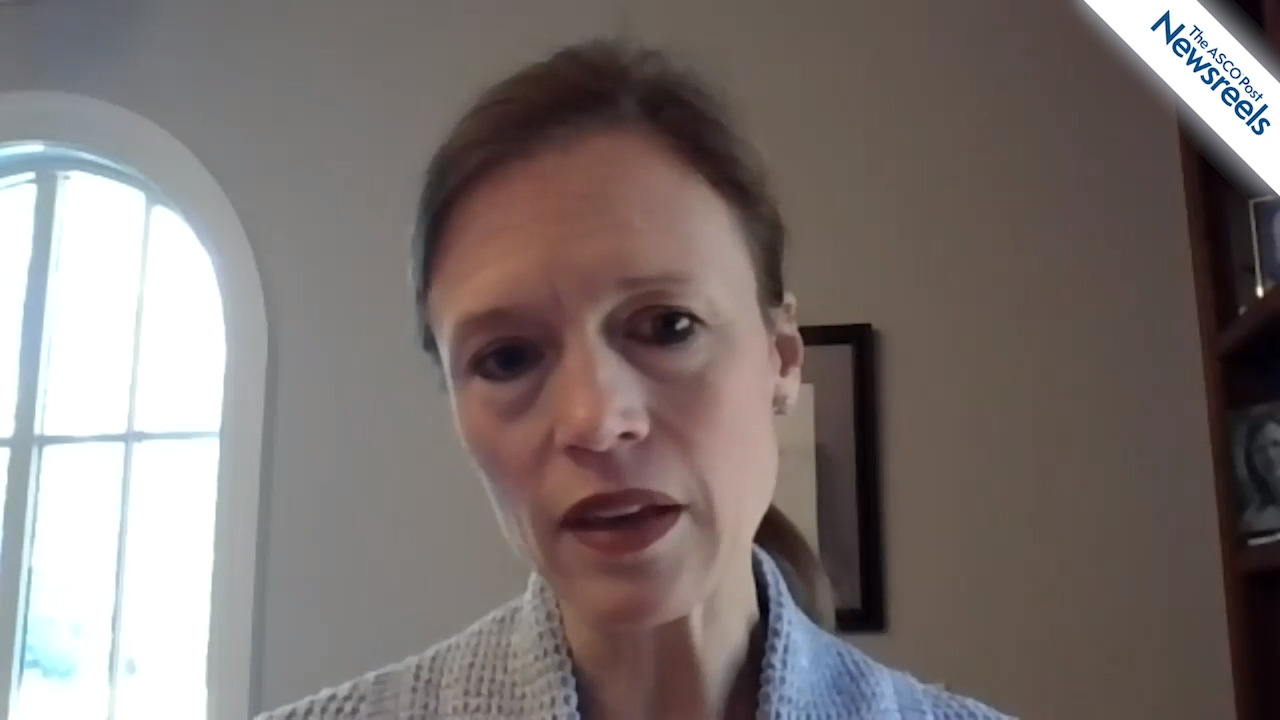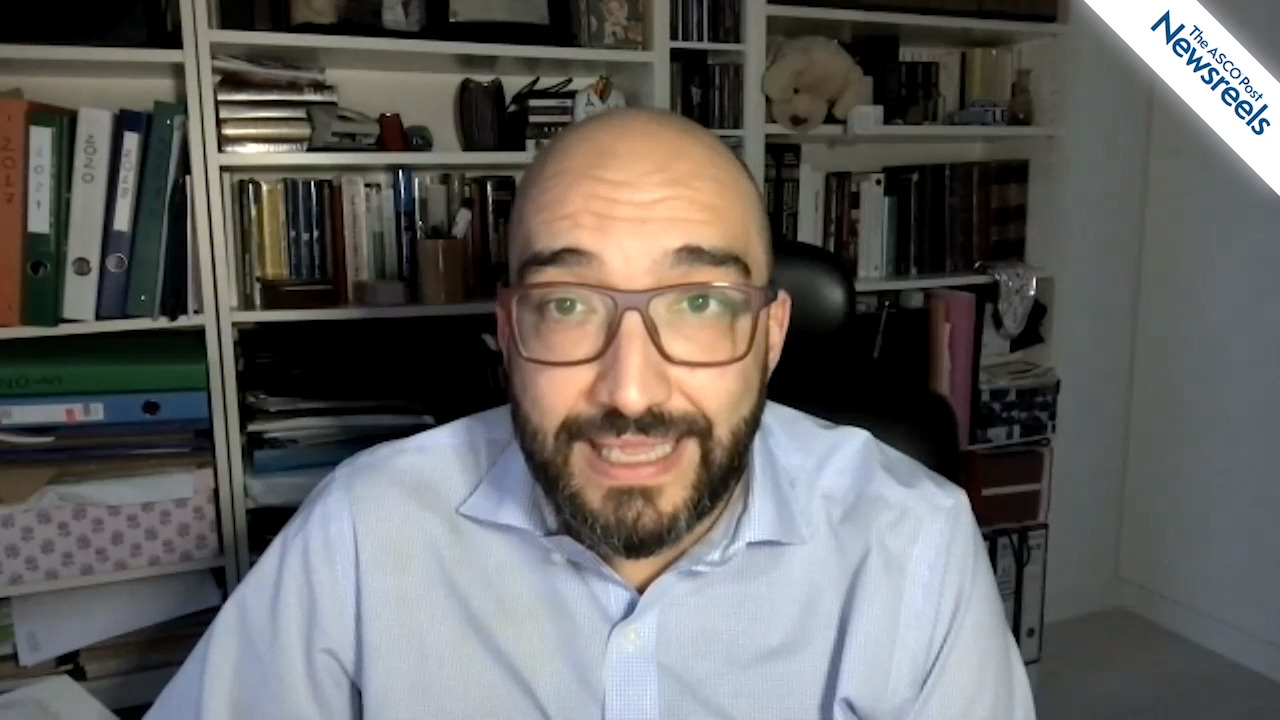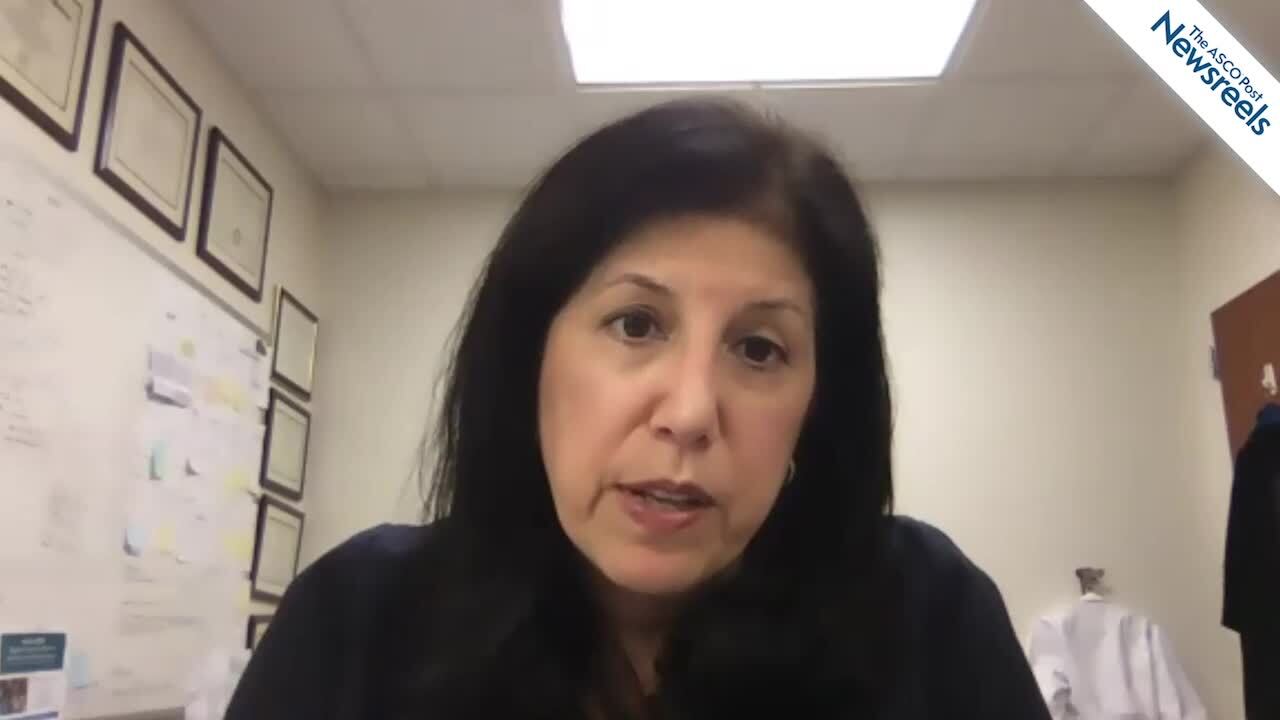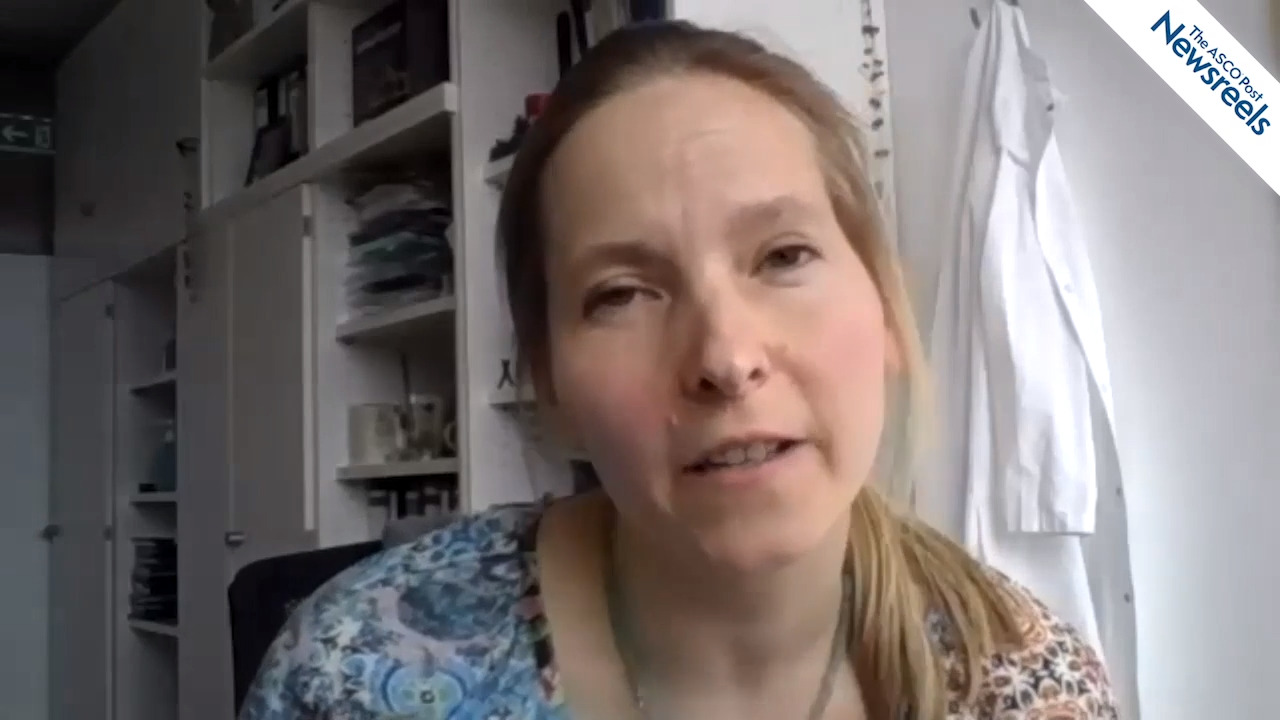Brian I. Rini, MD, on Renal Cell Carcinoma: Data on Atezolizumab, Bevacizumab, and Sunitinib
AACR Annual Meeting 2021
Brian I. Rini, MD, of Vanderbilt University, discusses the IMmotion151 trial results on overall survival and the association of gene expression and clinical outcomes with atezolizumab plus bevacizumab vs sunitinib in patients with locally advanced or metastatic renal cell carcinoma (Abstract CT188).
The ASCO Post Staff
Carey K. Anders, MD, of the Duke Cancer Center, discusses the ways in which treatment of brain metastases arising from solid tumors has moved into a new era of patient care and how the field may advance.
The ASCO Post Staff
Enrique Grande, MD, PhD, of The University of Texas MD Anderson Cancer Center, Madrid, discusses phase III overall survival results from the IMvigor130 study of atezolizumab plus platinum and gemcitabine vs placebo plus platinum and gemcitabine in patients with previously untreated metastatic urothelial carcinoma (Abstract CT187).
The ASCO Post Staff
Joann G. Elmore, MD, MPH, of the UCLA Fielding School of Public Health, discusses previous studies that show wide variability in cancer diagnoses, the uncertainties introduced by computer-aided detection tools, and new research on artificial intelligence and machine learning that may lead to more consistent and accurate diagnoses and prognoses, potentially improving treatment (Abstract SY01-03).
The ASCO Post Staff
Linda T. Vahdat, MD, MBA, of Memorial Sloan Kettering Cancer Center, discusses results of a phase II trial designed to test the concept that targeting the tumor microenvironment by depleting copper may prevent metastases, essentially disrupting the infrastructure that contributes to tumor spread.
The ASCO Post Staff
Jessica C. Hassel, MD, of University Hospital Heidelberg, discusses phase III results of a study that compared tebentafusp, a bispecific fusion protein, with investigator’s choice in patients with metastatic uveal melanoma. Tebentafusp nearly halved the risk of death among patients in the trial with this rare eye cancer (Abstract CT002).





